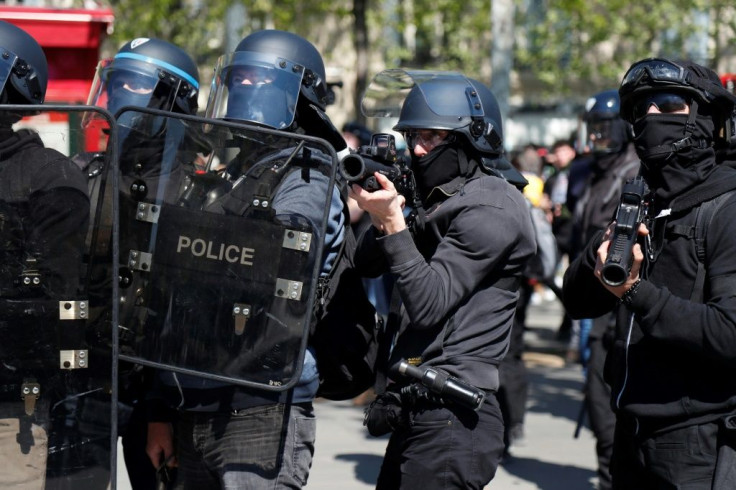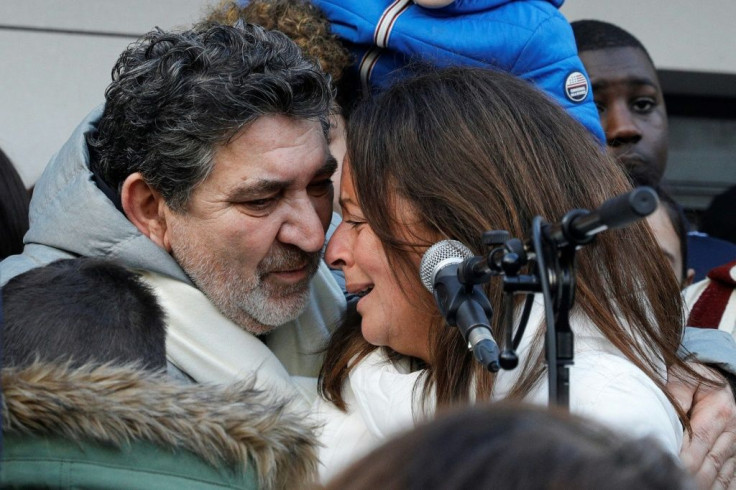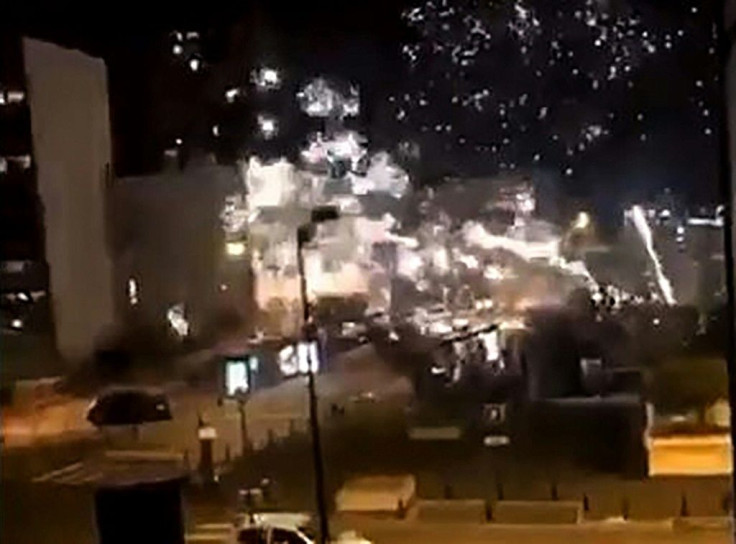French MPs Tackle Controversial Clampdown On Filming Police
The French parliament begins a debate Tuesday on legislation that would sharply curtail the publication of images of police officers in action, a move denounced by free speech advocates and critics of alleged police brutality.
France's security forces have long been accused of heavy-handed tactics when dealing with protesters, but also when stopping or arresting individuals, in particular black or Arab minorities.
A series of incidents caught on video have spurred calls for reform, which gained momentum in the wake of the "Black Lives Matter" movement in the US following the death of George Floyd.

Police counter that they are increasingly under threat as they struggle to carry out President Emmanuel Macron's promise to reduce crime and insecurity, especially in the rough housing blocks surrounding Paris and other cities.
An attack on a police station outside Paris last month, by dozens of people armed with fireworks and steel bars, galvanised the government to vow concrete measures to protect officers and improve working conditions.
A new "global security" law proposed by Macron's centrist government initially focused on reforms such as giving more autonomy to local police -- and potentially arming more of them -- and expanding the use of surveillance drones in high-crime areas.
But last month, his rightwing interior minister Gerard Darmanin supported a measure long sought by police unions, making it a crime to show images of an officer's face unless it has been made blurry.

Publication on social media or elsewhere with the intent of undermining an officer's "physical or psychological integrity" could be punished by a year in prison or fines of up to 45,000 euros ($53,000).
Darmanin says the measure would "protect those who are protecting us," especially in poor neighbourhoods where tensions often run high between law enforcement and immigrant communities.

The law's co-author Jean-Michel Fauvergue, a former head of France's elite RAID police unit, called the limits on police images a response to a "war of images" that "the authorities, and the state in particular, are losing".
Opponents argue the stricter rules would effectively remove a key tool for police accountability just as officials are facing calls for increased oversight.
Media groups have also denounced what they call a "gag law" similar to a measure in force in Spain since 2015, which could lead to self-censorship when dealing with police images.
An open letter this month signed by journalists across France, including some from Agence France-Presse, urged lawmakers to reject the new image limits, and protests have been called for outside parliament on Tuesday.
"There's reason to fear that officers who already often try to prevent filming or photographs of their interventions in public areas, including through the use of force -- despite it being perfectly legal -- will feel even more empowered to do so," they wrote.
Hundreds of violence complaints were filed against officers during the "yellow vest" anti-government rallies that erupted in 2018, which saw fierce clashes between protesters and police that made headlines worldwide.
In July, three officers were charged with manslaughter over the death of a delivery man, Cedric Chouviat, who was filmed by bystanders as officers had him in a chokehold after his arrest for a traffic offence near the Eiffel Tower.
Chouviat said "I'm suffocating" seven times before his body went limp, in a similar scenario to the "I can't breathe" uttered by George Floyd, the black American who also died after being pinned to the ground last May.
Floyd's death prompted mass protests against alleged police violence in France, particularly over the 2016 death in custody of a 24-year-old black man, Adama Traore.
Medical experts have exonerated the officers who arrested Traore, but his family has contested the findings, saying he was a victim of choking.
France's human rights auditor has also warned of "considerable risks" from the new law, saying it "must not impede on freedom of the press, nor on freedom of information."
"The publication of images regarding police interventions are legitimate and necessary for a democracy to function," the Defenseur des Droits said.
© Copyright AFP 2024. All rights reserved.




















